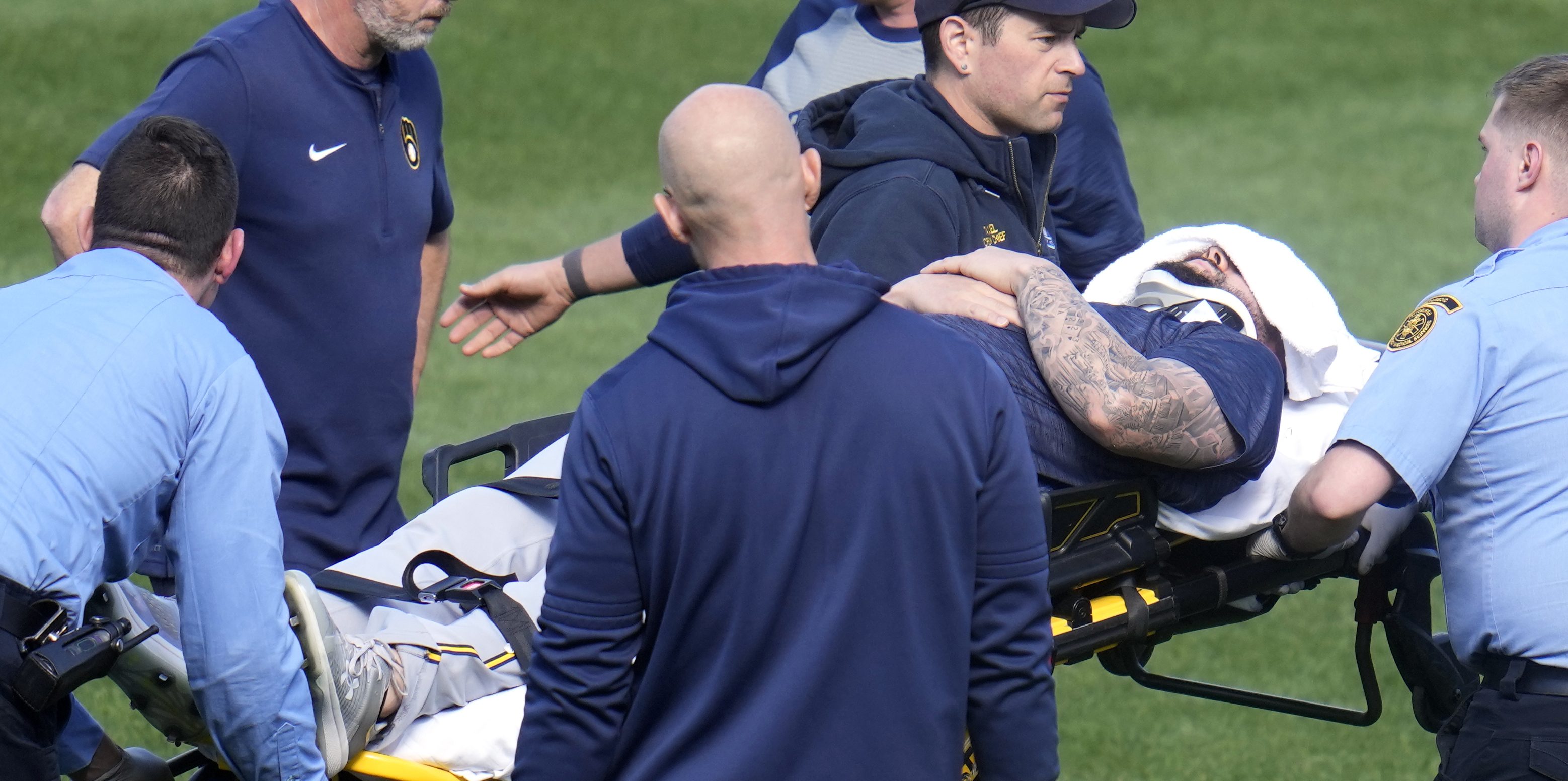
On June 3, 1991, the phone rang in the home where I grew up in Teaneck, New Jersey. It was a call I had been excitedly expecting. This was MLB Draft Day and the closer a call from a Major League team came to the top of the hour, the higher I had been drafted.
Shortly after the draft began, the Chicago Cubs called with hearty congratulations making me the 12th pick in the first round. It was a rush of emotion sparked from a lifelong passion for the game of baseball, all condensed into one moment.
What was unspoken about the range of emotions I had felt was the feeling of relief. Although I was excited to start the dream, like all projected top picks, I also had been dealing with months, even years of scrutiny from being under the microscope of evaluation.
I was only 20 years old and knew little about navigating the press or the exact rules of when or if I could have an agent to help me. Simply knowing who to trust outside of my immediate circle was a tall order.
Despite the fact that I was an organization’s top pick, like everyone I had weaknesses. The many scouts and potential suitors that had engaged me before the draft came at me with everything under the sun. At the time, it was hard to understand all of the screening that came with this opportunity, even though I recognized they were about to make a significant investment in me: one that was not just financial, but developmental.
Psych test? Check. Work ethic? Still evaluating. Family background? “Signability?” Not sure (kid may go back to school to get his engineering degree and cause us to waste our pick.) They needed answers and the best source was to get them from me, directly or indirectly, on and off the field.
Pre-draft, especially as we got closer, my phone rang off the hook in my dorm room, prompting my college roommate to complain that he was my receptionist. Agents, scouts, media, friends, family, a girlfriend. At one point in the chaos, super-agent Scott Boras even flew to Philadelphia, from the West Coast, sat in my dorm room and gave a four-hour presentation on the unique economics of my draft status. He made compelling arguments that I was trading an engineer’s salary for near poverty in the minor leagues and I should be compensated for that exchange. He told stories like when he banged his shoe on the table while negotiating for a client (I think it was for LSU pitching legend Ben McDonald, but don’t quote me.)
MLB
I also had some cryptic experiences. Before a game in college, we customarily went down the right field line to hit off of the batting tee. There was an entourage of scouts and media at the game, complete with video cameras on tripods. I grabbed a bat and walked down to the cage area. I got there and realized that I had forgotten a batting glove so I had to go back to the dugout. Then, like the changing of the ocean tide, an entire wave of evaluators stopped and followed me back only to have to reverse course to follow me again to the batting tee. One jokingly said to me, “Are you messing with us?” I was literally being tracked.
Then there was the media.
Nearing the peak of stress about this new concept of people who I had never met writing and talking about me, the New York Times called my house (guess he looked me up in the phone book) raising this idea that I was not committed to the game. It was not the first time I had heard this criticism since I chose an Ivy League school over going to a college with a national powerhouse baseball program. So I was ready on this day with a mini-speech to respond to what I knew was coming. The reporter followed up with the same line of questioning around my potential commitment issue.
His evidence to support his inquiry was from when I was about 14 years old and rumor had it that I missed a summer league game against the team of some teenage source he had. He alleged that when his source asked my teammates about me, apparently my teammates said, “He only comes when he wants to.” It didn’t sound like the description of a committed ballplayer. Well, at least he did his research, but I still had to ask if I was really being held to an alleged missed game from when I was in junior high?
Eventually, I was able to use the full speech for my defense.
Just before the draft I had reached the end of patience with this “commitment” line of questioning by strangers. At this point, I knew the news on me was not all negative nor was all of it totally out of bounds. There were glowing comments about my ability, but not much about other aspects of my life (outside of the hometown news.) Then a scout from the Detroit Tigers came to a summer league game right before the draft and caught me in the parking lot. He dove in about why they should bother drafting me with this lack of commitment issue. So I read him the riot act. I kind of felt bad for him because this was just backlash for my newly compromised privacy that had been bottled up.
I ranted about the sacrifices of my immigrant father and my mother, an African-American woman who grew up in the South in the 30s and 40s, that I owe it to my parents to finish school (they put a lot of money into my college – both my parents were first generation to go to college), and that I hoped he could see the positive of playing at a school where there were few baseball perks to play there.
I played because I simply loved the game. I also did my research, the Tigers did not have a pick in the first round (they had a supplemental pick at No. 32). So I obnoxiously said, “I would not be around by the time you picked anyway. So it doesn’t matter.” He apologized and said he was just doing his job. But I was pretty exhausted at that point. Is it draft day yet?
Once you hang up the phone on the draft day call, the media storm hits. The team that drafts you will tell the world how great a pick you were for their organization. That will feel good, that will let the air out of some of the stress balloons that had filled up just by waiting for this day to come. Here is one sample after I was drafted.
In the Chicago Tribune, Paul Sullivan quoted the Cubs scouting and development director Dick Balderson as saying about me: "He’s a legitimate center-field guy...he’s an 8 runner, which is the top of the running scale, with an average to above-average arm. Not a power guy, but we think a guy who’s going to hit for average. He’s a guy who can run and play a legitimate premium position...”
Now here is what was said about Cubs’ 2018 first round pick Nico Hoerner “He’s a multi-tool athlete with incredible makeup…..He’s a leader on the field. He’s a leader in the dugout. He’s incredibly passionate and all about winning. He’s exactly what we’re looking to bring into the organization.” (This from Cubs scouting and player development executive, Jason McLeod in the Chicago Sun Times.)
Yet soon after the draft day twinkle fades. It will be time to sign on the dotted line and you may hear about some of the things you can’t do or, in my case, who may be better than you (although the slotting system probably cuts down on the bad blood of negotiating.) The top centerfield draft pick in 1991 was chosen second overall, Arizona State's Mike Kelly. I was told during one pre-sign conversation with a team official, and I paraphrase, that Kelly would drive in more runs than you will at the big league level. (Don’t take it personally, it is just business.)
Even though it was hard to hear it at the time, it is fair game and advanced training for life in the big leagues and being under a national watchful eye on a daily basis. After all, money is now on the table and it is time to negotiate your first contract. Thick skin and patience are required.
When I consider how communication has changed since 1991, it is clear that today’s evaluations are much more detailed, with video, the internet and social media. The 20-year-old today is considerably more versed than I was with the media and how to engage masses of people from all over the country. But the pitfalls are even deeper.
It worked out for me about as well as it could have worked out. Just staying healthy was a victory. I lived out some of the greatest hopes of my baseball childhood. Carrying the dreams of my family, my community, my college, with me. It was an honor. I also was motivated by this tone that my focus, passion and drive was underestimated when I was first selected.
Over time, I became more and more grateful for the opportunity and lessons the Cubs and ultimately Major League Baseball, gave me. I also had a chance to learn about the many people who were truly in my corner, and there were many who helped along the way. They must be cherished.
Congratulations to the 2018 draft class! Exhale and don’t forget to enjoy the ride. Love the game, no matter what was, is, or will be said about you. If you need to correct the record, you can write your own story later. On and off the field.
Or with a pen.


